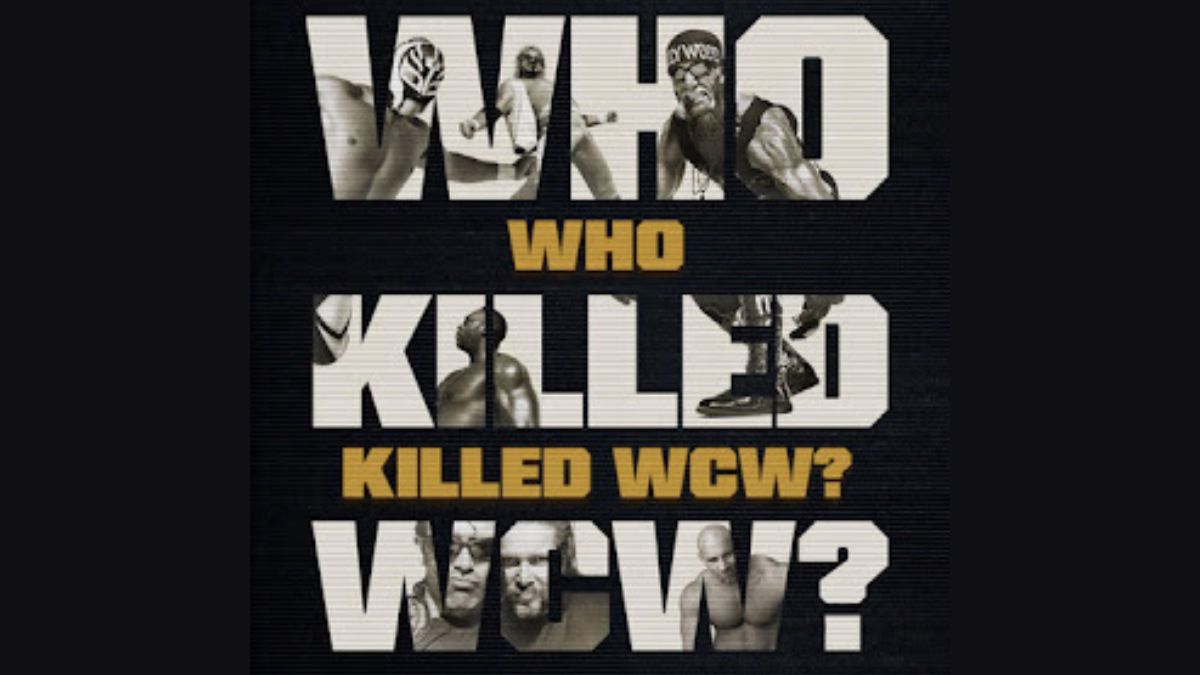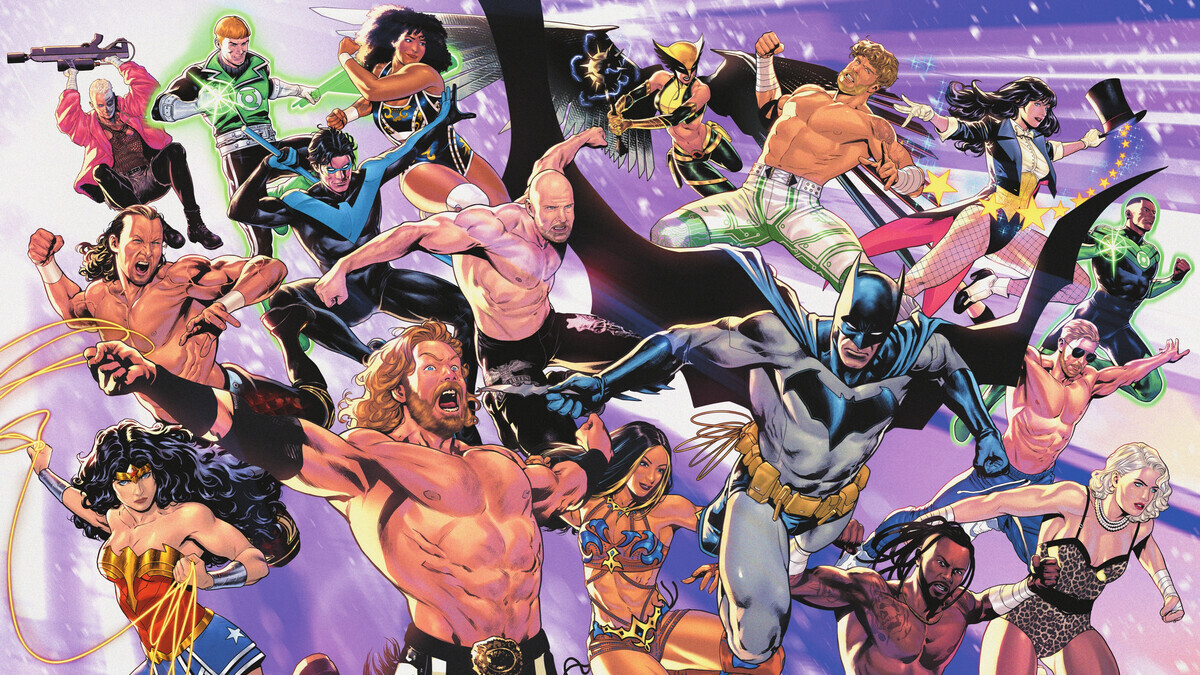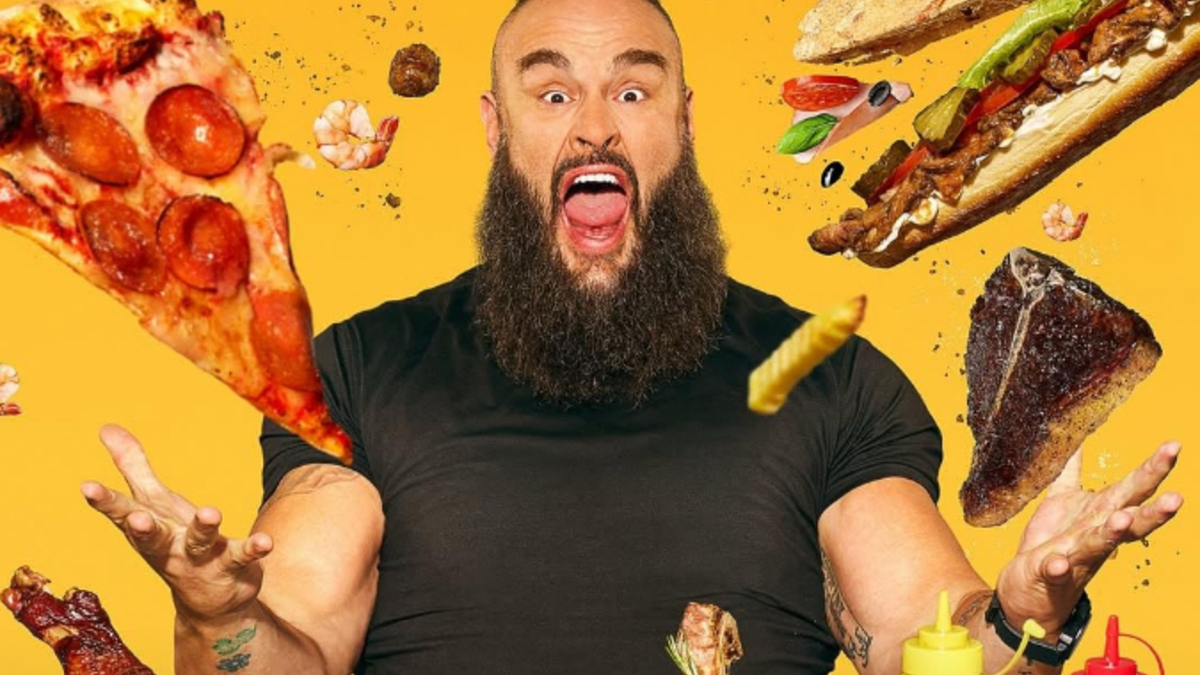First part of ‘Who Killed WCW?’ pretty familiar
If Who Killed WCW? was a murder mystery novel, episode one chose the plot, defined the setting, identified key characters and established a motive – but not a lot of new information was revealed.
Old tales were retold, bitter feelings bubbled back to the surface and fingers were pointed.
The show very early focused on Eric Bischoff as a main voice.
His entire backstory with Ninja Stars game and the AWA is touched on, followed by his arrival in WCW as a third-string announcer after hearing from Larry Zbyszko that they were hiring new talent.
Bischoff eventually was hired to be WCW’s executive vice-president and the company was given one last shot by owner Ted Turner to turn a profit after losing money for years.
WCW was seen as an annoying tag-along by many in Turner, but specifically Brad Siegel – who was the Turner Networks president at the time.
Siegel is someone who hasn’t spoken a lot on publicly on WCW and I felt he brought a fresh and unique perspective to the show about everything that was going on in that time period.
Bischoff explained moving to MGM Studios to tape shows, signing Hulk Hogan and other ways to enhance the product, but then the entire wrestling business changed when he told Turner he needed a Monday night primetime live show to compete against the WWF in 1995.
“When Ted said I wanted to wanted to move WCW to TNT… it was like, what are you kidding me?” Siegel recalled. “We were trying to build a brand where we were known as the premium channel on basic cable but I tried to fight a battle with Ted and I lost it.”
Bischoff explained the live aspect, using surprises and being different than the WWF helped them build an audience.
The arrival of Scott Hall and Kevin Nash, which led to the Hogan heel turn and the formation of the New World Order that put WCW over the top. They rode that ratings win wave over the WWF for 83 weeks and Bischoff seemed to have the perfect conclusion to the story – a Sting victory at Starrcade 1997.
Unfortunately, that decision was completely botched and the explanation still doesn’t seem to make a lot of sense. Bischoff said that the original finish would see a fast count by the referee led to Bret Hart arriving, throwing out that decision and restarting the match that Sting would win and WCW would triumph over the evil nWo.
“Really?” Hart said when he was told the finish. “That is the lamest ending, just awful and convoluted. But Bischoff said it would be fantastic.”
Bischoff shared a story of how Sting, Hogan and himself discussed the finish, but both he and Hogan felt that Sting wasn’t excited enough about all the work they had done to build the match. When Sting left the room, Bischoff said Hogan told him not today and changed the finish because he had creative control. Thus, the count didn’t appear to be fast and an 18-month storyline was flushed down the toilet.
“Sting was convinced that Hogan was going to pull the rug out from him and then that manifested itself,” Bischoff said.
Bischoff stated that the Starrcade 97 will haunt him for the rest of his life and it didn’t live up to the hype. Meanwhile, the WWF was heating up and stars like Steve Austin and The Rock, as well as the addition of Mike Tyson to the WrestleMania build in 1998 ended the ratings win streak for WCW and WWF didn’t really look back.
Hart, Siegel and Booker T all initially placed blame on Bischoff for why WCW died.
“Eric Bischoff was always chasing ratings and cared more about that than advertising dollars,” Siegel said. “That and a maniacal desire to beat the WWF and be number one.”
Hart pulled no punches, stating that Bischoff never knew anything about wrestling. Booker said that Bischoff had the checkbook and the blame lay with him.
The show also opened with several stars giving their basic assessment of why WCW died. Nash stated it was the Turner execs, Bill Goldberg blamed Vince Russo, Madusa said egos and Siegel pointed the finger at the WCW talent. Bischoff called it a death by a thousand cuts.
I believe Konnan summed it up accurately very early on in the show. “It was people thinking about themselves and not about the good of the company,” he said.
Booker T also had some wise observations, pointing out that Hogan was in his right to use his creative control at Starrcade 97, but that he was only interested in helping himself – not the company.
Overall, I felt episode one was an interesting basic introduction to some of the issues, but a lot of these things have been discussed to death on the WWE Network and in books.
I did appreciate hearing from Siegel and also enjoyed the production tidbits from Neal Pruitt, who was a supervising feature producer with WCW. Those new voices are so badly needed on a topic that has been rehashed over and over.
Bischoff is a compelling speaker, but I would have liked more of an explanation about exactly what happened at Starrcade 97. I still recall him telling Conrad Thompson on a podcast that Sting didn’t have a nice enough tan to beat Hogan
I also thought it was interesting that he focused a lot on getting Hall and Nash, but failed to mention firing Steve Austin in 1995. That decision done differently may have led to a huge change in wrestling history.
Next episode gets more into the 1998 and 1999 time period and seems as though Bischoff believes that Turner execs were out to get him. The Finger Poke of Doom, the mishandling of Goldberg and Bischoff’s sabbatical in ’99 are all likely going to be discussed next episode and it should be interesting to see him explain those devastating decisions.
RELATED LINKS
- June 19, 2024: Bro, third ‘Who Killed WCW?’ all Russo and bad booking
- June 12, 2024: Goldberg steamrolls through second ‘Who Killed WCW?’ episode
- June 10, 2024: Ric Flair blames this trio for the death of WCW




